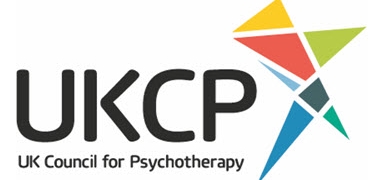Navigating the Challenges of Boarding School in Counselling
/If you are looking to meet with a therapist to discuss how you have been affected by the issues outlined in this article please contact The Palmeira Practice. We will put you in touch with one of our therapists who has specialist knowledge in this area.
Boarding schools have often been glorified in popular culture, including in the Harry Potter books and films. In our society, boarding schools are often seen as a privilege. However, this view doesn't tell the whole story. Many people who attended boarding school have reported negative impacts on their mental health in later life.
Glorified depictions of boarding school in popular culture don’t represent the realities that such institutions subject people to.
One of the primary issues associated with boarding school is the deep-rooted sense of inadequacy it can instil which carries on into adulthood. Children who are sent away from home may struggle to understand why their parents have chosen to separate from them, leading to feelings of abandonment and confusion. While parents and wider society may view boarding school as a privilege, the children who are sent away themselves may not feel the same way.
Boarding School Syndrome
Boarding school can be a challenging and isolating experience, as children are separated from their families and placed in a highly structured and regimented environment. This can lead to feelings of loneliness, abandonment, and a sense of not belonging. Additionally, the strict rules and regulations of boarding schools can lead to a loss of autonomy and a feeling of being controlled, which can impact an individual's self-esteem and confidence.
Boarding School Syndrome, a term introduced by psychotherapist Joy Schaverien, describes the ongoing difficulties that adults who were sent away from home at an early age may face. This syndrome is characterised by feelings of loneliness, abandonment, and low self-esteem, as well as difficulties in forming close and intimate relationships.
Children attending boarding school experience feelings of loneliness and abandonment which can be carried into adulthood.
The emotional and psychological difficulties experienced by those with Boarding School Syndrome can have long-lasting effects into adulthood. Denying and suppressing feelings is often required to survive in the boarding school environment, and these survival strategies can follow individuals into adult life. What was once a helpful survival strategy, now manifests in less helpful ways.
Challenges Ex-Boarders may Experience
Ex-boarders may experience challenges with:
identifying and feeling emotions
fear of abandonment
fear of failure
low self-esteem
difficulty relaxing
workaholism
ambition and drive for success at any cost
difficulty with intimacy, relationships and emotional closeness
trusting others
addictions
Joy Schaverien’s ABCD Acronym
In her work on Boarding School Syndrome, Joy Schaverien uses an ABCD acronym to describe the impact of the boarding school environment:
Abandonment
Bereavement
Captivity
Dissociation
Children who attend boarding school experience abandonment when the attachment bond with their parents is consciously broken. They may also experience bereavement due to significant losses, such as the loss of their parents, siblings, pets, and personal space. This is not ‘just homesickness’, but profound grief. Captivity refers to the fact that the child is powerless and cannot leave the boarding school. Finally, dissociation describes how many ex-boarders don't remember their first day and may suppress their feelings of sadness, confusion, and anger. This denial of feelings is further supported by the boarding school environment that encourages children to keep busy, not express their feelings, and not make a fuss.
The ABCD acronym captures the overall experience many people have when attending boarding school – Abandonment, bereavement, captivity, dissociation.
Change the Impact of Boarding School
If you can relate to any of these experiences, you are not alone. It's not too late to explore any difficulties that may be holding you back and make changes in your life.
Research shows that our brains continue to change throughout our lives, and change is possible with the help of others. It may not be quick and it may not be easy, but there is hope. Working with a therapist who understands the challenges involved can be a useful first step towards making positive changes.
Working with a therapist or counsellor who understands the issues that boarding school survivors experience can be a key part of this process.







